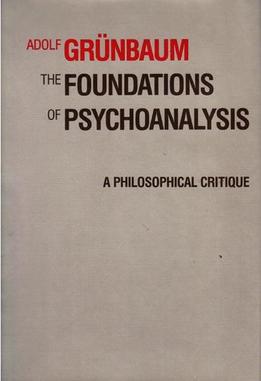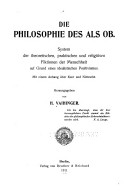Related Research Articles
Psychoanalysis is a set of theories and therapeutic techniques that deal in part with the unconscious mind, and which together form a method of treatment for mental disorders. The discipline was established in the early 1890s by Sigmund Freud, whose work stemmed partly from the clinical work of Josef Breuer and others. Freud developed and refined the theory and practice of psychoanalysis until his death in 1939. In an encyclopedia article, he identified the cornerstones of psychoanalysis as – "the assumption that there are unconscious mental processes, the recognition of the theory of repression and resistance, the appreciation of the importance of sexuality and of the Oedipus complex." Freud's students Alfred Adler and Carl Gustav Jung developed offshoots of psychoanalysis which they called individual psychology (Adler) and Analytical Psychology (Jung), although Freud himself wrote a number of criticisms of them and emphatically denied that they were forms of psychoanalysis. Psychoanalysis was later developed in different directions by neo-Freudian thinkers, such as Erich Fromm, Karen Horney, and Harry Stack Sullivan.

Sigmund Freud was an Austrian neurologist and the founder of psychoanalysis, a clinical method for evaluating and treating pathologies seen as originating from conflicts in the psyche, through dialogue between patient and psychoanalyst, and the distinctive theory of mind and human agency derived from it.
Psychoanalytic theory is the theory of personality organization and the dynamics of personality development relating to the practice of psychoanalysis, a clinical method for treating psychopathology. First laid out by Sigmund Freud in the late 19th century, psychoanalytic theory has undergone many refinements since his work. The psychoanalytic theory came to full prominence in the last third of the twentieth century as part of the flow of critical discourse regarding psychological treatments after the 1960s, long after Freud's death in 1939. Freud had ceased his analysis of the brain and his physiological studies and shifted his focus to the study of the psyche, and on treatment using free association and the phenomena of transference. His study emphasized the recognition of childhood events that could influence the mental functioning of adults. His examination of the genetic and then the developmental aspects gave the psychoanalytic theory its characteristics. Starting with his publication of The Interpretation of Dreams in 1899, his theories began to gain prominence.
Scientism is the opinion that science and the scientific method are the best or only way to render truth about the world and reality.
Paul Kurtz was an American scientific skeptic and secular humanist. He has been called "the father of secular humanism". He was Professor Emeritus of Philosophy at the State University of New York at Buffalo, having previously also taught at Vassar, Trinity, and Union colleges, and the New School for Social Research.

The Interpretation of Dreams is an 1899 book by Sigmund Freud, the founder of psychoanalysis, in which the author introduces his theory of the unconscious with respect to dream interpretation, and discusses what would later become the theory of the Oedipus complex. Freud revised the book at least eight times and, in the third edition, added an extensive section which treated dream symbolism very literally, following the influence of Wilhelm Stekel. Freud said of this work, "Insight such as this falls to one's lot but once in a lifetime."

Free Inquiry is a bimonthly journal of secular humanist opinion and commentary published by the Council for Secular Humanism, a program of the Center for Inquiry. Philosopher Paul Kurtz was the editor-in-chief from its inception in 1980 until stepping down in 2010. Kurtz was succeeded by Tom Flynn who worked as Editor in Chief until 2021. Paul Fidalgo was named editor in 2022, beginning with the October/November issue. Feature articles cover a wide range of topics from a freethinking perspective. Common themes are separation of church and state, science and religion, dissemination of freethought, and applied philosophy. Regular contributors include well-known scholars in the fields of science and philosophy.

Freudo-Marxism is a loose designation for philosophical perspectives informed by both the Marxist philosophy of Karl Marx and the psychoanalytic theory of Sigmund Freud. It has a rich history within continental philosophy, beginning in the 1920s and 1930s and running since through critical theory, Lacanian psychoanalysis, and post-structuralism.

Margaret "Gretl" Stonborough-Wittgenstein, of the prominent and wealthy Viennese Wittgenstein family, was a sister of the philosopher Ludwig Wittgenstein and the pianist Paul Wittgenstein. She was the subject of a famous 1905 portrait painted for her wedding by the artist Gustav Klimt, which was sold in 1960 by her son Thomas and may now be seen in the Alte Pinakothek gallery in Munich.
Resistance, in psychoanalysis, refers to the client's defence mechanisms that emerge from unconscious content coming to fruition through process. Resistance is the repression of unconscious drives from integration into conscious awareness.
This is a timeline of the modern development of psychiatry. Related information can be found in the Timeline of psychology and Timeline of psychotherapy articles.
Todd Dufresne is a Canadian social and cultural theorist best known for his work on Sigmund Freud and the history of psychoanalysis. He is Professor of Philosophy at Lakehead University in Thunder Bay, Ontario.

The Assault on Truth: Freud's Suppression of the Seduction Theory is a book by the former psychoanalyst Jeffrey Moussaieff Masson, in which the author argues that Sigmund Freud, the founder of psychoanalysis, deliberately suppressed his early hypothesis, known as the seduction theory, that hysteria is caused by sexual abuse during infancy, because he refused to believe that children are the victims of sexual violence and abuse within their own families. Masson reached this conclusion while he had access to several of Freud's unpublished letters as projects director of the Sigmund Freud Archives. The Assault on Truth was first published in 1984 by Farrar, Straus and Giroux; several revised editions have since been published.

The Foundations of Psychoanalysis: A Philosophical Critique is a 1984 book by the philosopher Adolf Grünbaum, in which the author offers a philosophical critique of the work of Sigmund Freud, the founder of psychoanalysis. The book was first published in the United States by the University of California Press. Grünbaum evaluates the status of psychoanalysis as a natural science, criticizes the method of free association and Freud's theory of dreams, and discusses the psychoanalytic theory of paranoia. He argues that Freud, in his efforts to defend psychoanalysis as a method of clinical investigation, employed an argument that Grünbaum refers to as the "Tally Argument"; according to Grünbaum, it rests on the premises that only psychoanalysis can provide patients with correct insight into the unconscious pathogens of their psychoneuroses and that such insight is necessary for successful treatment of neurotic patients. Grünbaum argues that the argument suffers from major problems. Grünbaum also criticizes the views of psychoanalysis put forward by other philosophers, including the hermeneutic interpretations propounded by Jürgen Habermas and Paul Ricœur, as well as Karl Popper's position that psychoanalytic propositions cannot be disconfirmed and that psychoanalysis is therefore a pseudoscience.

The Sigmund Freud Prize or Sigmund Freud Prize for Academic Prose is a German literary award named after Sigmund Freud and awarded by the Deutsche Akademie für Sprache und Dichtung. It was first awarded in 1964.
Frank Cioffi was an American philosopher educated in New York and Oxford.

The Philosophy of 'As if': A System of the Theoretical, Practical and Religious Fictions of Mankind is a 1911 book by the German philosopher Hans Vaihinger, based on his dissertation of 1877. The work for which Vaihinger is best known, it was published in an English translation by C. K. Ogden in 1924. In 1935, a revised and abbreviated English translation by Ogden was published. The revised translation was based on the sixth German edition of the original work.

The New York University Department of Philosophy is ranked 1st in the US and 1st in the English-speaking world as of the most recent edition of the Philosophical Gourmet Report from 2021. It is also ranked 1st in the world by the 2022 QS World University Rankings, and is internationally renowned. It has particular strengths in epistemology, history of philosophy, logic, metaphysics, moral and political philosophy, philosophy of language, philosophy of logic and philosophy of mathematics, and philosophy of mind. The department offers B.A., M.A., and Ph.D. degrees in philosophy, as well as a minor in philosophy and a joint major in language and mind with the NYU Departments of Linguistics and Psychology. It is home to the New York Institute of Philosophy, a research center that supports multi-year projects, public lectures, conferences, and workshops in the field, as well as outreach programs to teach New York City high school students interested in philosophy.
Miriam Sophie Freud was an Austrian American psychosociologist, educator, and author. The granddaughter of Sigmund Freud, she was a critic of psychoanalysis, aspects of which she described as "narcissistic indulgence". Her criticisms of the elder Freud's psychoanalytical doctrines made her the "black sheep" of the family and she observed how all of her female relatives, including her mother, Ernestine, and aunt Anna, were adversely affected by Sigmund's claims about women and their internal experiences.
References
- ↑ "The 2012 Kyoto Prize Laureate". Inamori Foundation. Archived from the original on 4 March 2016. Retrieved 12 March 2016.
- ↑ "Sigmund-Freud-Preis". Deutsche Akademie für Sprache und Dichtung . Retrieved 9 January 2013.
- ↑ Hughes, Austin. "The Folly of Scientism" (PDF). The New Atlantis - A Journal of Technology & Society. Archived from the original (PDF) on 24 December 2012. Retrieved 19 January 2013.
- ↑ Dworkin, Ronald W. (2012). "Psychotherapy and the Pursuit of Happiness" (PDF). The New Atlantis. Number 35: 69–83. Archived from the original (PDF) on 6 November 2012. Retrieved 19 January 2013.
- ↑ Vitello, Paul (1 February 2012). "Frank Cioffi, Philosopher and Critic of Freud, Dies at 83". The New York Times. Retrieved 7 January 2013.
- ↑ Fox, Margalit (13 March 2012). "Ruth Barcan Marcus, Philosopher-Logician, Dies at 90". The New York Times. Retrieved 7 January 2013.
- ↑ Yardley, William (16 August 2012). "Hugo Bedau, Philosopher Who Opposed Death Penalty, Dies at 85". The New York Times. Retrieved 7 January 2013.
- ↑ O'Grady, Jane (September 28, 2012). "Ray Billington obituary". 28 September 2012. London: The Guardian. Retrieved 28 February 2013.
- ↑ Weber, Bruce (23 October 2012). "Paul Kurtz, 86, Humanist Publisher, Dies". The New York Times. Retrieved 7 January 2013.
- ↑ Oppenheimer, Mark (1 October 2010). "Closer Look at Rift Between Humanists Reveals Deeper Divisions". The New York Times. Retrieved 7 January 2013.